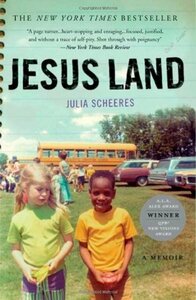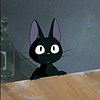Take a photo of a barcode or cover
emotional
sad
tense
slow-paced
Haunting memoir of the Christian home and family. Captures tragedy in prose that is beyond striking. This is a book for those ready to be moved and brought to an uncomfortable place that requires reflection. Great read.
I read the comic series (still ongoing) regarding Elan School (elan.school) and it mentioned Julia's Jesus Land in passing. I had to, therefore, read it as well.
I am glad that Julia wrote this book and introduced us all to David, her brother. The life she lived alongside him was not easy to go through.
An interesting read!
I am glad that Julia wrote this book and introduced us all to David, her brother. The life she lived alongside him was not easy to go through.
An interesting read!
informative
sad
medium-paced
Great book about the dangers of being born and adopted into an ultra conservative Christian family. Bittersweet.
challenging
dark
emotional
informative
inspiring
reflective
sad
fast-paced
This was a terribly hard read, but fascinating. Important to share the word of abusive "reform schools" and "adventure camps for troubled teens" because, though this story is set in the 70s, this kind of abuse is still prevalent.
Graphic: Bullying, Child abuse, Mental illness, Misogyny, Racial slurs, Racism, Rape, Self harm, Sexual assault, Sexual content, Forced institutionalization, Religious bigotry, Abortion, Gaslighting, Alcohol
This book is not about religion, but rather what people do in the name of religion, and how religion went wrong in the hands of devout Midwestern Calvinist white parents. Julia's memoir is an honest and raw account of her "Christian" childhood and I have no trouble believing its events... it is a true testimony of the power of the religious spirit to wreck the home, and to keep parents from loving their children.
While Julia is everything strong and vulnerable, I do not romanticize her past and her hurt and I will not flower her story with "these things only made her stronger" because she was only a child and deserved security instead of the strength she was forced to form. However, her memoir must be met with the recognition of her bravery and courage throughout: she spares no details of her upbringing and this makes it easy to recognize these traits of hers.
The true success of Scheeres' memoir comes from her ability to make her younger self and brother, David, come to life. Though it is told through her perspective, David's personality is contained within every page... which ultimately makes Julia's story more tragic in the end.
Four stars and an enthusiastic recommendation to fans of The Glass Castle.
While Julia is everything strong and vulnerable, I do not romanticize her past and her hurt and I will not flower her story with "these things only made her stronger" because she was only a child and deserved security instead of the strength she was forced to form. However, her memoir must be met with the recognition of her bravery and courage throughout: she spares no details of her upbringing and this makes it easy to recognize these traits of hers.
The true success of Scheeres' memoir comes from her ability to make her younger self and brother, David, come to life. Though it is told through her perspective, David's personality is contained within every page... which ultimately makes Julia's story more tragic in the end.
Four stars and an enthusiastic recommendation to fans of The Glass Castle.
emotional
inspiring
reflective
sad
medium-paced



